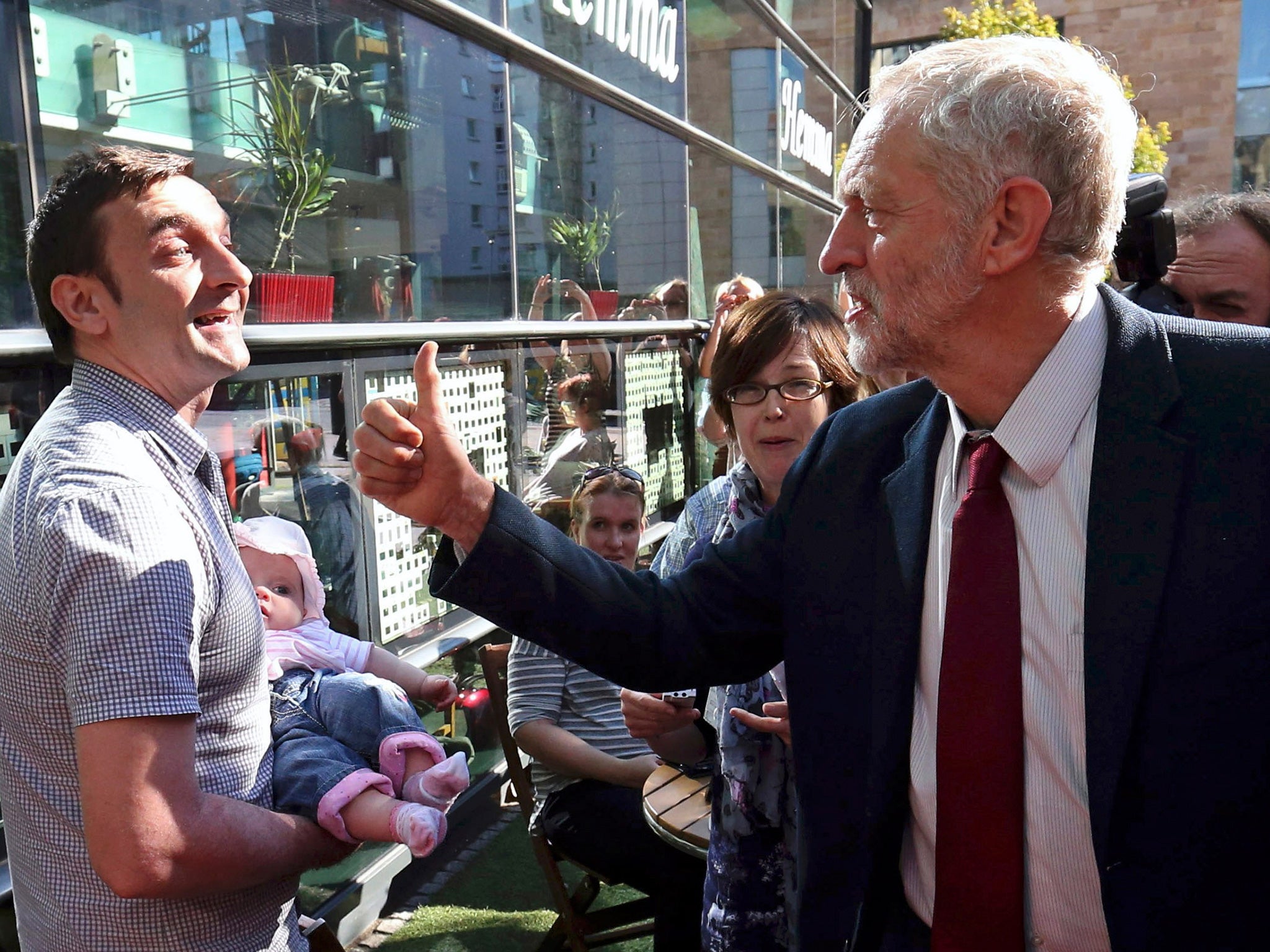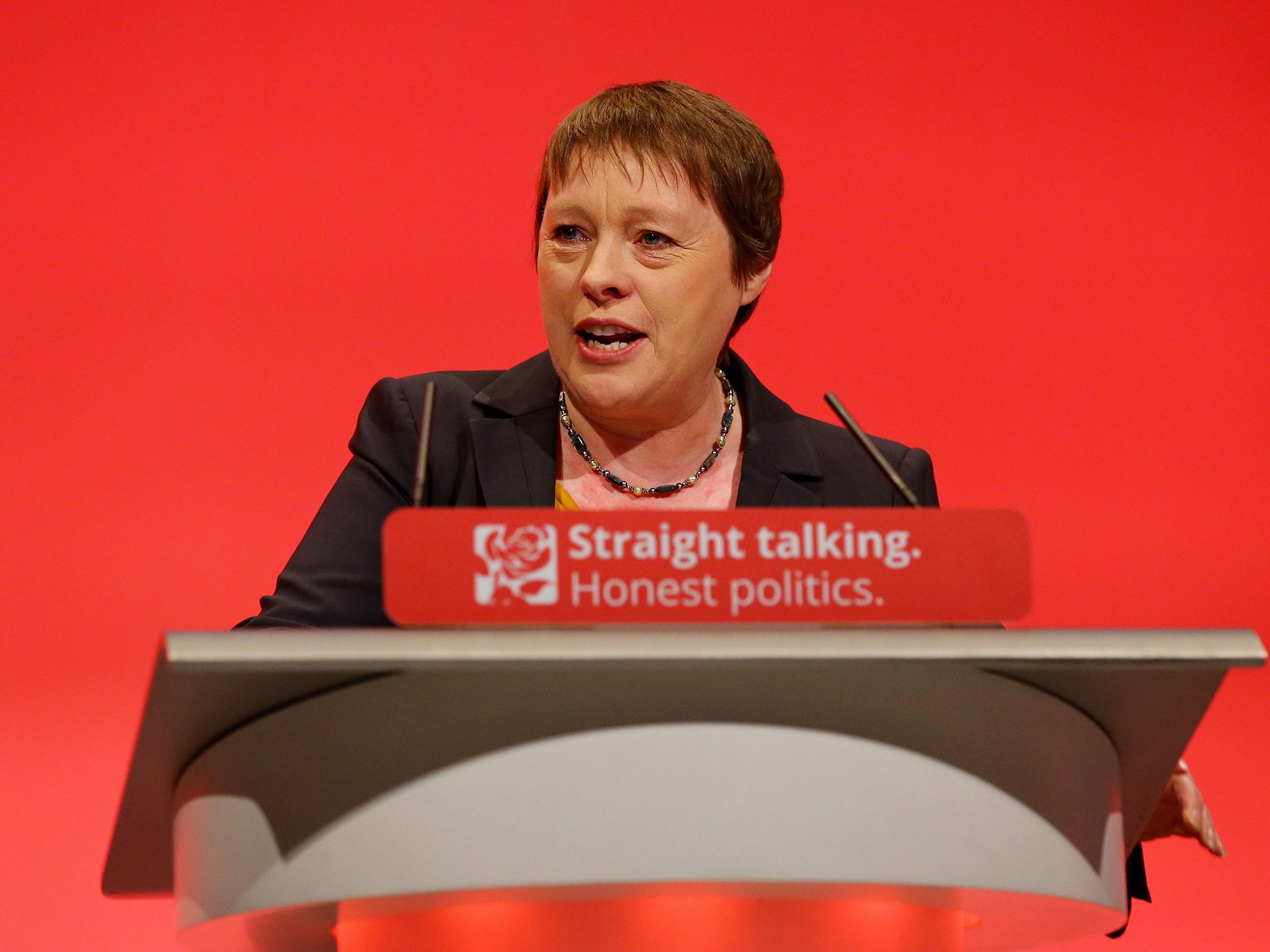Jeremy Corbyn’s bind - he wants to listen to Labour party, but what if he doesn't like what he hears?
The artless unspun low-key authenticity of this man who makes his own jam is a winning antidote to the smooth certainties of the contemporary politician


It might be called Corbyn’s Bind. A dilemma is a difficult choice which has to be made between alternatives, desirable or, more usually, undesirable. A bind, by contrast, entangles two options together to create a position which it is difficult to disentangle – and may tighten with time.
Jeremy Corbyn’s bind arises from the fact that he wants two things as leader of the Labour Party. The first is greater democracy; he desires ordinary party members to have a greater say in fixing policy. The second is that he wants the party to adopt radical policies which are truly alternatives to the Tory Austerity and the Austerity Lite which the public found so unconvincing from Ed Miliband.
These two aims are not necessarily incompatible. But in terms of practical politics, they are proving to be so. Corbyn appears to have assumed that increasing party democracy would endorse causes of which he approves – higher taxes, an end to tuition fees, nationalising the energy companies, a welcome for economic migrants, rejection of bombing raids on Syria and unilateral nuclear disarmament. The nasty shock has been that allowing others a voice has allowed them – very publicly – to disagree with him.
And repeatedly. Conference refused even to debate Trident. The shadow Home Secretary Andy Burnham contradicted Corbyn on the need for immigration controls. In a remarkable rebuke, his shadow Defence Secretary Maria Eagle cast doubt on his fitness to run the country when he declared he would never use the nation’s nuclear deterrent. His colleagues insisted he could not keep his election pledge to scrap university tuition fees; the idea must be subjected to the normal party policy review process, they said. And they made him drop his plans to nationalise the energy companies and take free schools and academies back into the control of local authorities.

Political pundits insist that all this is taking its toll in the polls. One survey of public opinion last month found that three in four voters could not imagine Jeremy Corbyn as prime minister. One in five people who voted Labour in May said they were more likely to vote Conservative next time. Another poll gave Corbyn the worst ratings on record for a Labour leader – with a “minus 8” approval rating compared with the “plus 26” even Ed Miliband got when he became leader.
When Corbyn went to Scotland recently, his unstuffy, dignified honesty stood in contrast to the posturing of Nicola Sturgeon
Yet Corbyn’s Bind is a chronic rather than acute phenomenon. The new Labour leader can probably live with it for some considerable time. The artless unspun low-key authenticity of this man who makes his own jam is a winning antidote to the smooth certainties of the contemporary politician of whom the much-reviled Tony Blair is the unfortunate apotheosis. (The party appears to have forgotten that Blair was the leader who won three general elections in a row for it.)
The rumpled Corbyn – with his bicycle and beard and unextravagant parliamentary expense account – is the man who reluctantly agreed to stand for leader because no one else in the left-wing MPs Campaign group would do it. “I suppose it’s my turn,” he is reported to have conceded. He is the antithesis of ambition, of the vainglorious personal variety at any rate.
That tweedy integrity and vegetarian high-mindedness continue to protect him from a lot. Making mistakes and correcting them are part of his charisma. He has conceded that as party leader he will, in future, sing “God Save the Queen”. He has agreed to wear a red poppy to commemorate the nation’s war dead. He has accepted, after being initially taken aback, that he will have to kneel before the Queen when he becomes a Privy Counsellor. He seems to have forgotten about leaving Nato, a 60p top rate of tax and the idea of printing money to pay for new schools, hospitals and transport.
Despite all that, the public views him with an enduring as well as endearing charm. As with Syriza in Greece and Podemos in Spain, he is testament to the disgruntlement of a large swathe of the electorate which is fed up with the lack of imagination among our vacuous mainstream politicians. Like those other political movements, he offers simple solutions to intractable complex problems.
But simple solutions can pale. When Corbyn went to Scotland recently, his unstuffy, dignified honesty stood in contrast to the posturing of SNP leader Nicola Sturgeon, who suddenly looked a plastic politician like all the rest. Corbyn admitted that Labour may have to go into next year’s Holyrood elections without having a clear position on Trident. “Don’t give them the easy answer; give them the honest answer,” he disarmingly declared his policy to be. Outside a café, a man shouted out to him: “Thanks for bringing humanity back to politics. Well done, sir.”
People want something different, Corbyn insists. That is true. But it cannot keep him from the fatal contradictions of Corbyn’s Bind for ever.
Paul Vallely is visiting professor in public ethics, University of Chester
Join our commenting forum
Join thought-provoking conversations, follow other Independent readers and see their replies
Comments
Bookmark popover
Removed from bookmarks